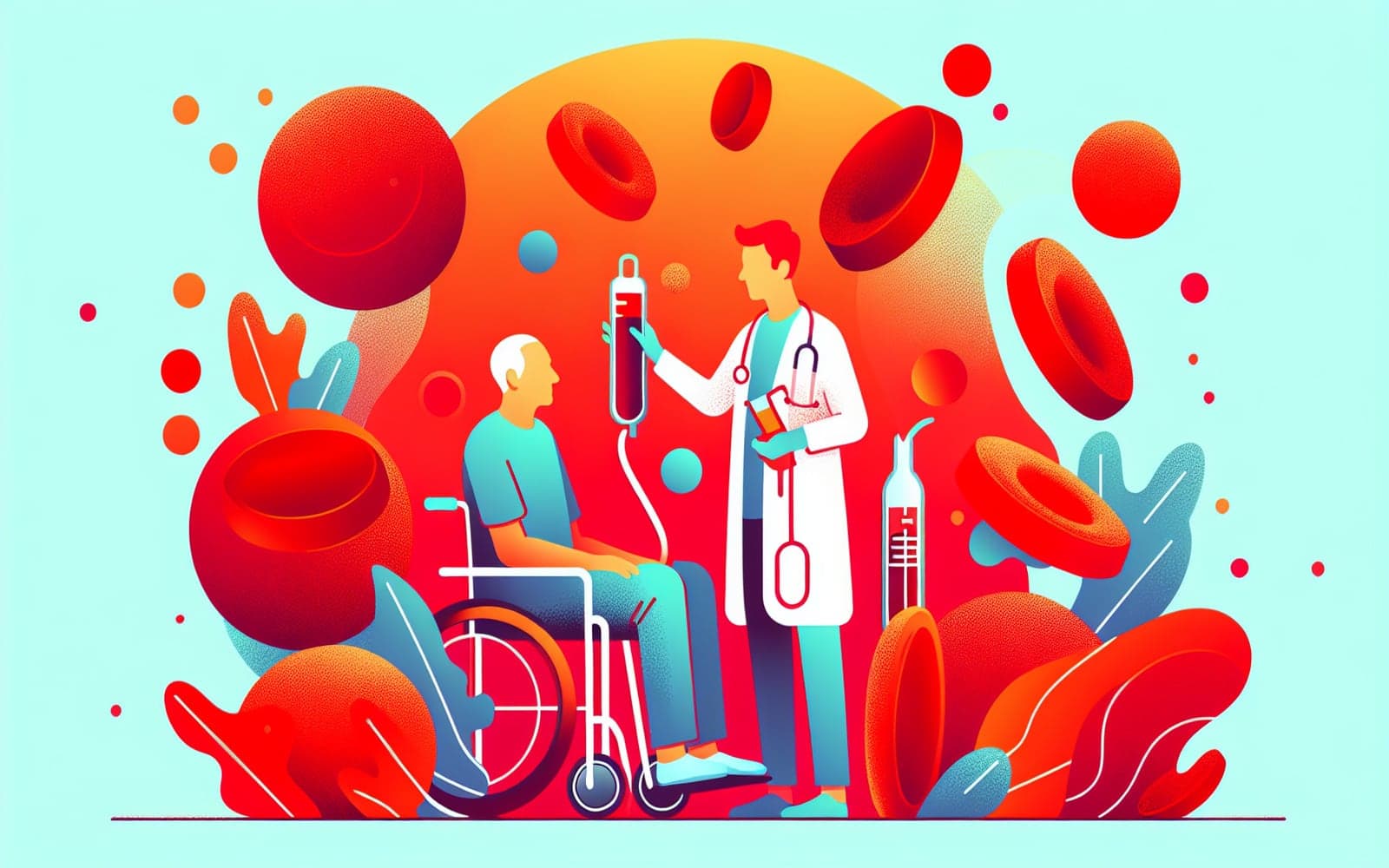Why Do I Have Too Many Red Blood Cells? Causes of Erythrocytosis Explained
Published: Jan 02, 2024

Medically reviewed by Oghenefejiro Okifo | MD, Harvard Medical School | Henry Ford Hospital - Detroit, MI on January 2nd, 2024.
Erythrocytosis, or having too many red blood cells, can stem from various causes. Understanding these can help you and your doctor pinpoint the underlying issue and determine the best course of action.
Contents
Primary Erythrocytosis: When Your Bone Marrow Goes Rogue
Primary erythrocytosis occurs when there's a problem with your bone marrow, the factory where blood cells are made. The most common form is polycythemia vera, caused by a mutation in the JAK2 gene. This mutation makes your bone marrow produce too many red blood cells, even when your body doesn't need them. Other rare genetic conditions can also cause primary erythrocytosis by affecting how your body regulates red blood cell production.
Secondary Erythrocytosis: Your Body's Response to Low Oxygen
Secondary erythrocytosis happens when your body produces more red blood cells in response to low oxygen levels. This can be due to living at high altitudes, where the air is thinner. Lung conditions like chronic obstructive pulmonary disease (COPD) or sleep apnea can also trigger this response. Some heart conditions that reduce blood oxygen levels may lead to secondary erythrocytosis too. Smoking is another common cause, as it reduces the oxygen-carrying capacity of your blood.

Tumor-Related Erythrocytosis: When Cancer Plays a Role
In rare cases, certain tumors can cause erythrocytosis by producing too much erythropoietin (EPO), the hormone that stimulates red blood cell production. Kidney cancers, liver tumors, and some brain tumors are known to sometimes cause this. It's important to note that while this is a possibility, it's not common, and having erythrocytosis doesn't necessarily mean you have cancer.
Frequently Asked Questions
Chronic stress may contribute, but it's rarely the sole cause.
Not always, but it can lead to complications if left untreated.
Yes, a diet very high in iron could potentially contribute to erythrocytosis.
It's slightly more common in men, especially polycythemia vera.
Key Takeaways
Identifying the cause of erythrocytosis is crucial for effective treatment and management of your health.
Wondering about the cause of your high red blood cell count? Consult with Doctronic to explore possible reasons.Related Articles
References
Keohane C, McMullin MF, Harrison C. The diagnosis and management of erythrocytosis. BMJ 2013; 347:f6667.
Prchal JT, Sokol L. "Benign erythrocytosis" and other familial and congenital polycythemias. Eur J Haematol 1996; 57:263.
This article has been reviewed for accuracy by one of the licensed medical doctors working for Doctronic. Always discuss health information with your healthcare provider.

